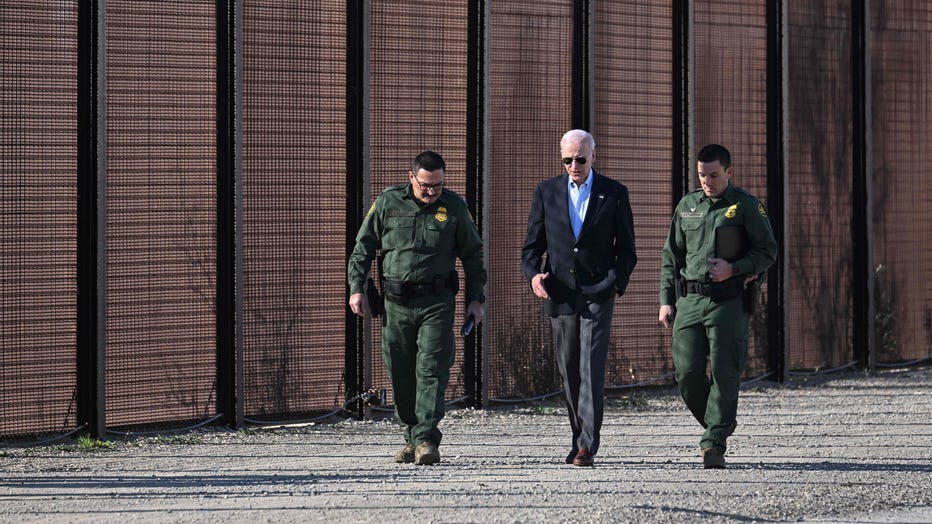Biden issues executive order on border security
Biden blames GOP for border crisis
President Biden blamed GOP lawmakers for the ongoing crisis at the border. Biden said at a news conference, 'Republicans have left me no choice, today I am announcing actions.' The executive order states migrants are suspended and limited to entry of the U.S.
President Joe Biden announced Tuesday he’s taking executive action to curb immigration at the southern border.
Details of his executive order include shutting down asylum processing along the U.S.-Mexico border if illegal crossings average 2,500 per day.
The order will go into effect when the number of border encounters between ports of entry hits 2,500 per day, according to senior administration officials.
That means Biden’s order should go into effect immediately, because that figure is higher than the daily averages now. The restrictions would be in effect until two weeks after the daily encounter numbers are at or below 1,500 per day between ports of entry, under a seven-day average.

FILE - President Joe Biden speaks with a member of the US Border Patrol as they walk along the US-Mexico border fence in El Paso, Texas, on January 8, 2023. (Photo by Jim Watson/AFP via Getty Images)
Once this order is in effect, migrants who arrive at the border but do not express fear of returning to their home countries will be subject to immediate removal from the United States, within a matter of days or even hours. Those migrants would face punishments that could include a five-year bar from reentering the U.S., as well as potential criminal prosecution.
Meanwhile, anyone who expresses that fear or intention to seek asylum will be screened by a U.S. asylum officer but at a higher standard than what is currently used. If they pass the screening, they can pursue more limited forms of humanitarian protection, including the U.N. Convention Against Torture.
RELATED: Claudia Sheinbaum to be Mexico's 1st female president: What to know about her
The prospect of Biden taking executive action on border policy has been speculated about for months, particularly after a bipartisan deal collapsed in Congress in February.
And the latest foreign policy package passed by Congress in April did not include any border policy either, something that Rep. Marjorie Taylor Greene and other Republicans used to threaten House Speaker Mike Johnson’s job.
In February, U.S. Homeland Security Secretary Alejandro Mayorkas’ job was also threatened when the House voted to impeach him for his oversight of the border, though his trial was quickly dismissed in the Senate in April.
Arrests for illegal crossings on the U.S. border with Mexico hit record highs in December but fell by nearly half in early 2024 to one of the lowest months under Biden’s presidency.
Immigration is one of the biggest issues in this year’s presidential election, with exit polls showing it was the top concern among many Republican voters in early primaries.
RELATED: Potential TikTok ban, $95B foreign aid bill approved by Senate
The legal authority being invoked by Biden comes under Section 212(f) of the Immigration and Nationality Act, which allows a president to limit entries for certain migrants if it’s deemed "detrimental" to the national interest.
Former President Donald Trump leaned on the 212(f) power while in office, including enacting his controversial ban on travelers from Muslim-majority nations. Biden rescinded that ban on his first day in office via executive order.
Biden’s border security order is likely to face resistance now from Justice Department lawyers, and the American Civil Liberties Union said in the hours following that it intends to sue.
This story was reported from Detroit. The Associated Press contributed.

